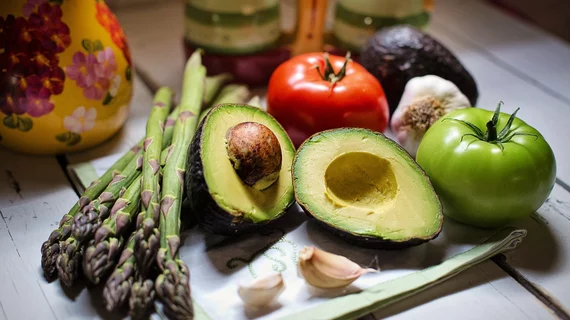Eating avocados lowers CVD risk
Regularly eating avocados is associated with a reduced risk of cardiovascular disease (CVD), according to new research published in the Journal of the American Heart Association.[1]
The study’s authors explored 30 years of data from nearly 69,000 women and 42,000 men. The women were all between the ages of 30 and 55 years old, and the men were all between the ages of 40 and 75. All patients were living in the United States and free of cancer, coronary heart disease (CHD) and stroke at the start of the study. Diet information was taken from patient questionnaires.
Over the study’s three decades of follow-up, there were more than 9,000 documented coronary heart disease events and more than 5,000 strokes. Eating at least two servings of avocado per week was associated with a 16% lower risk of CVD and a 21% lower risk of CHD.
In addition, replacing half a daily serving of margarine, butter, egg, cheese or processed meats with the same amount of avocado was linked to a reduction in the risk of CVD events of 16% to 22%. Replacing olive oil, nuts or other plant oils with avocados, however, was not tied to any observed benefit.
“Our study provides further evidence that the intake of plant-sourced unsaturated fats can improve diet quality and is an important component in cardiovascular disease prevention,” lead author Lorena S. Pacheco, PhD, a postdoctoral research fellow in the nutrition department at the Harvard T.H. Chan School of Public Health in Boston, said in a statement. “These are particularly notable findings since the consumption of avocados has risen steeply in the U.S. in the last 20 years, according to data from the U.S. Department of Agriculture.”
Eating avocados, the team added, was not associated with a change in stroke risk.
The authors did note that their study was observational. In addition, a majority of participants were nurses and healthcare professionals.
“Further studies are needed to assess the impact and effectiveness of avocado intake in reducing incident CVD and CVD risk factors,” the authors concluded.
Related Heart Health Content:
COVID-19 linked to a higher risk of diabetes for at least 1 year
Tofacitinib increases risk of heart issues, cancer among rheumatoid arthritis patients
Evolocumab limits adverse cardiovascular outcomes among PCI patients
Drinking wine with meals may lower risk of type 2 diabetes
Reference:
1. Lorena S. Pacheco, Yanping Li, Eric B. Rimm, et al. Avocado Consumption and Risk of Cardiovascular Disease in US Adults. Journal of the American Heart Association. 2022;0:e024014.

